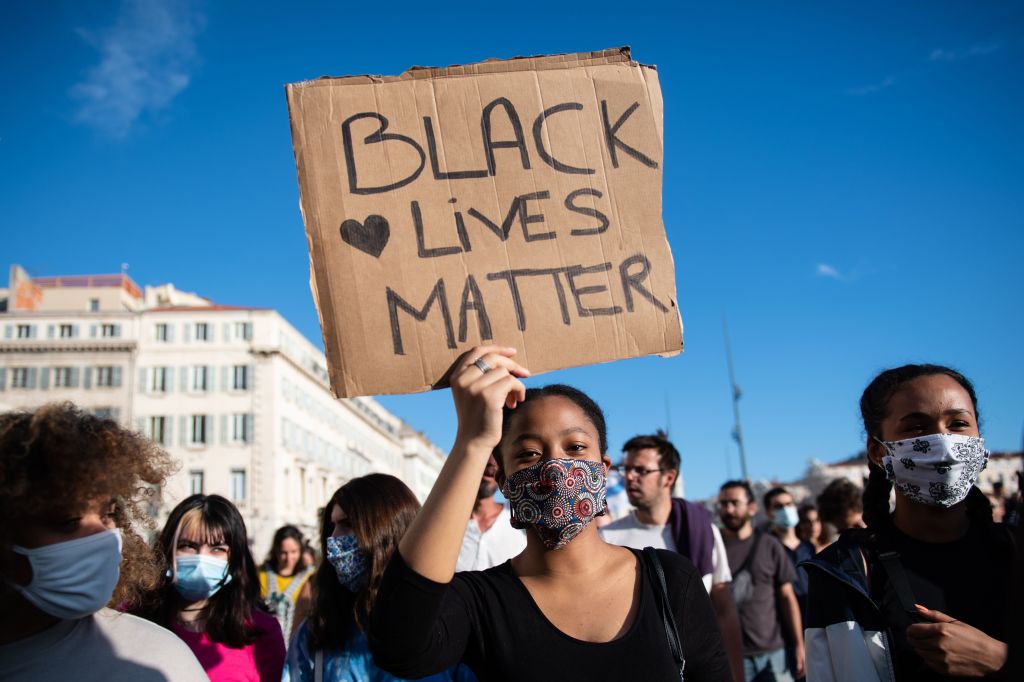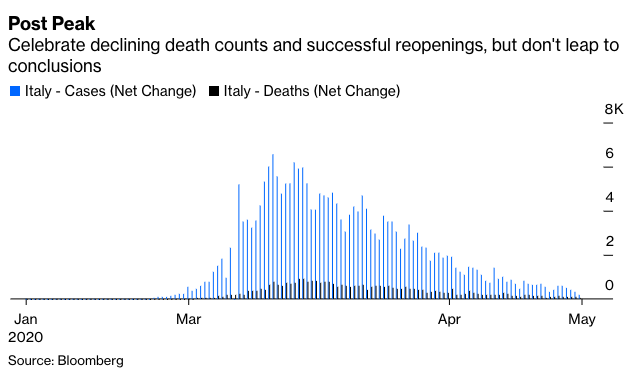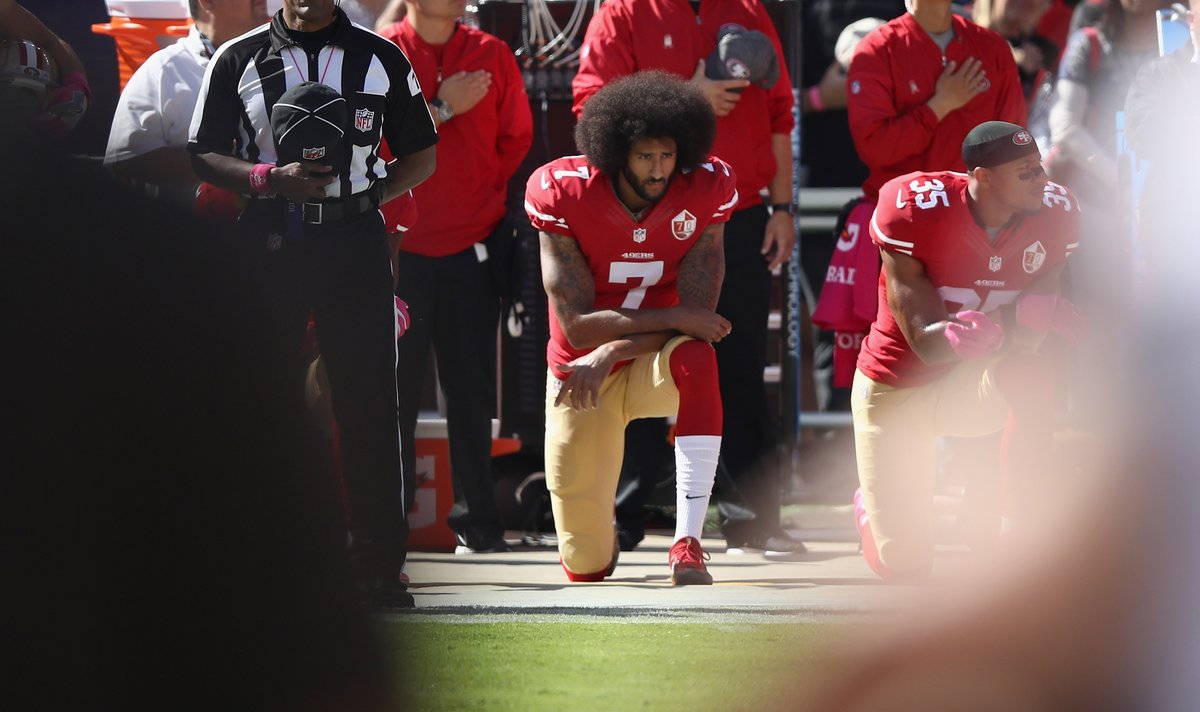Super, glad to hear it. But what’s the racial makeup of your board? Who succeeds in your organization? Who gets promoted? bloom.bg/3d0qxH1
The experience of black professional women diverges dramatically from that of white men bloom.bg/3d0qxH1
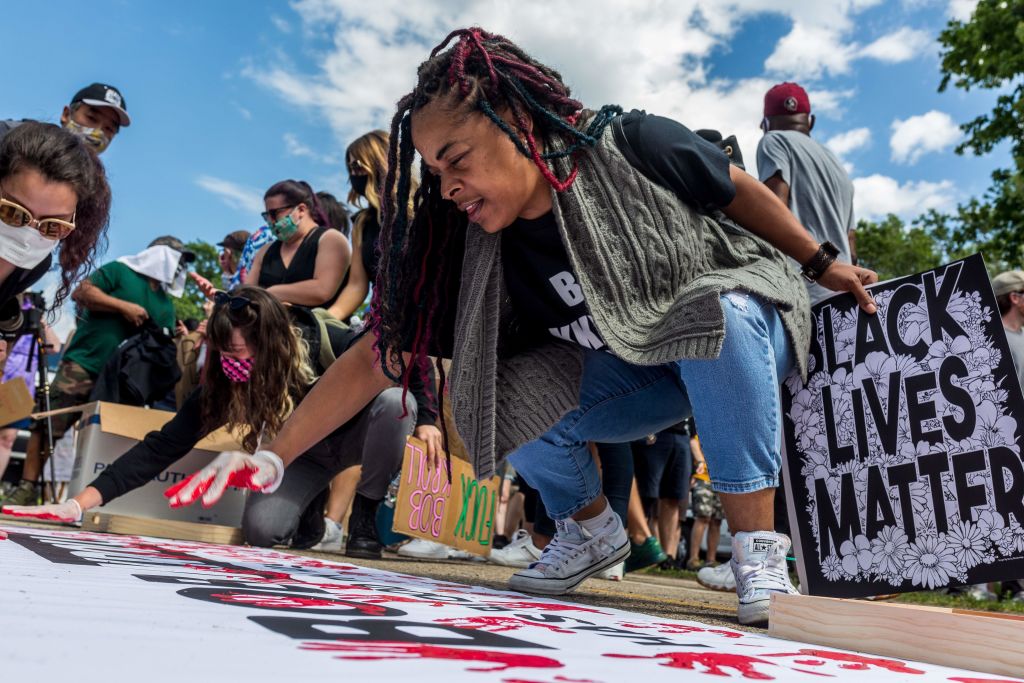
There’s plenty of hard data out there to show that black women’s perceptions are correct bloom.bg/3d0qxH1
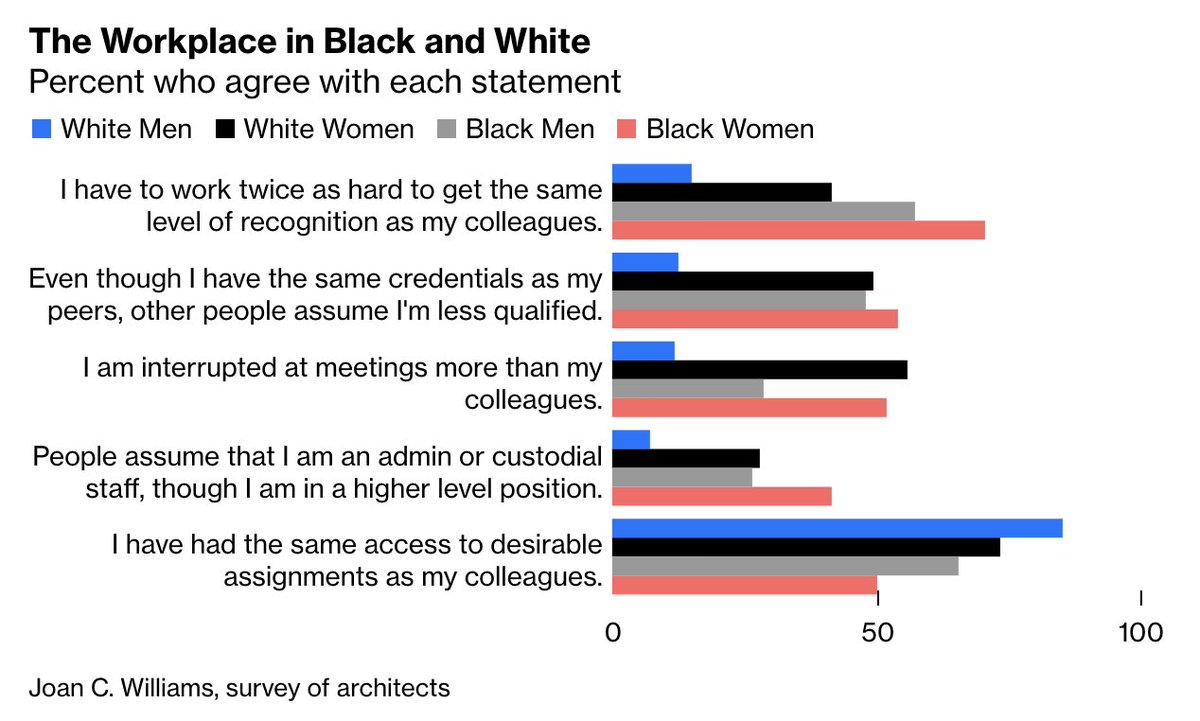
🤝Hiring
📋Assignments
⬆️Promotions bloom.bg/3d0qxH1

Organizations accept a narrower range of behavior from black women, who are the group most likely to report pushback for showing anger bloom.bg/3d0qxH1
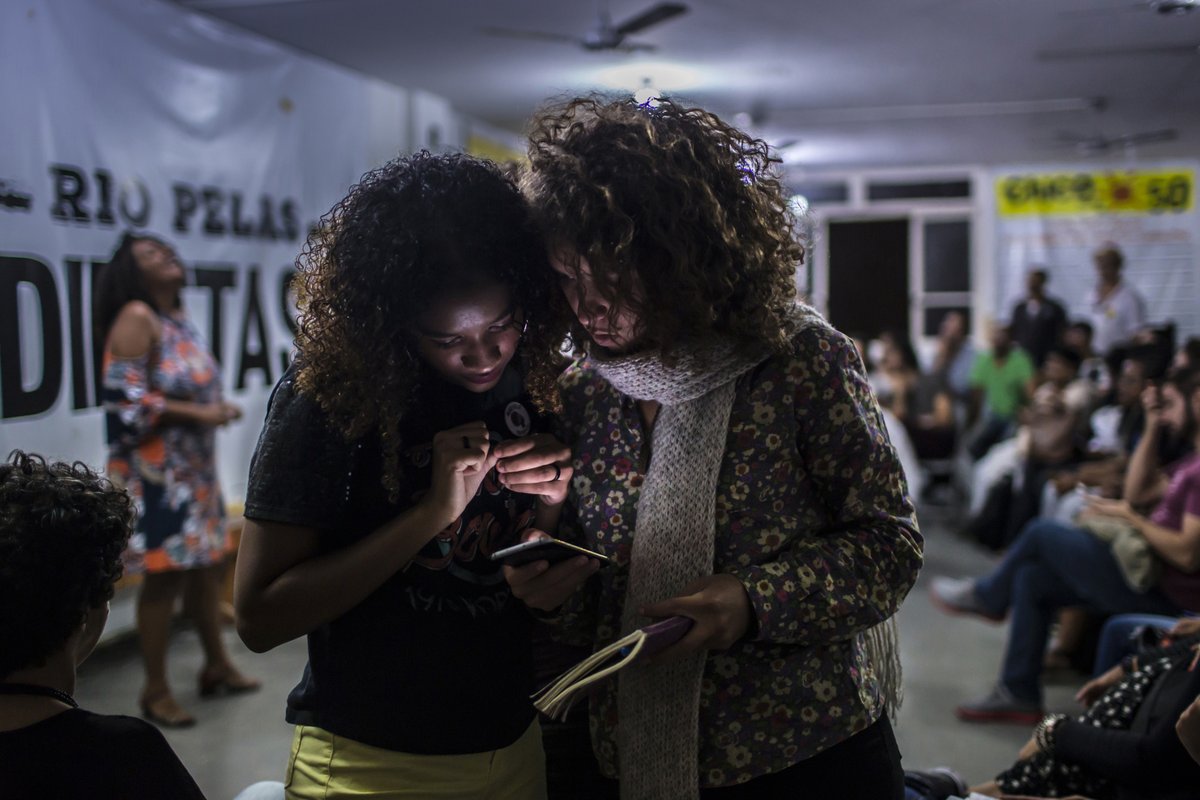
➡️76% of all women felt that women support other women
➡️56% of black women agreed
One biologist described her experience as isolating: “You don’t know who you can trust” bloom.bg/3d0qxH1
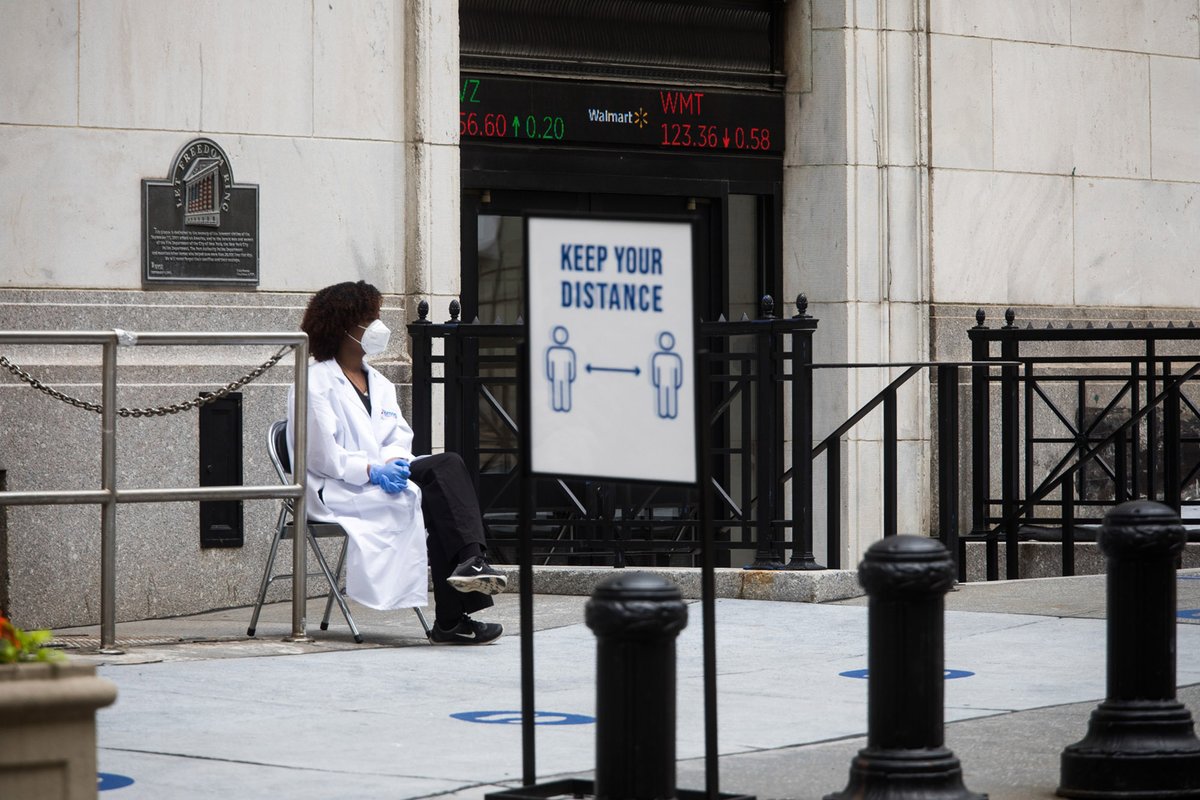
It’s not that hard bloom.bg/3d0qxH1

That same data-driven, experimental approach can be used to fight racism and sexism in the workplace bloom.bg/3d0qxH1

Use this data to pinpoint where bias plays out in business contexts and then interrupt that bias with new, evidence-based processes bloom.bg/3d0qxH1

They don’t require changing how people think, as so much implicit bias training tries (and fails) to do. Instead, they interrupt bias by changing business routines bloom.bg/3d0qxH1

➡️Tacking the demography of the initial applicants
➡️Monitoring which resumes get to the top of the pile
➡️Logging who gets interviewed and who gets offers bloom.bg/3d0qxH1
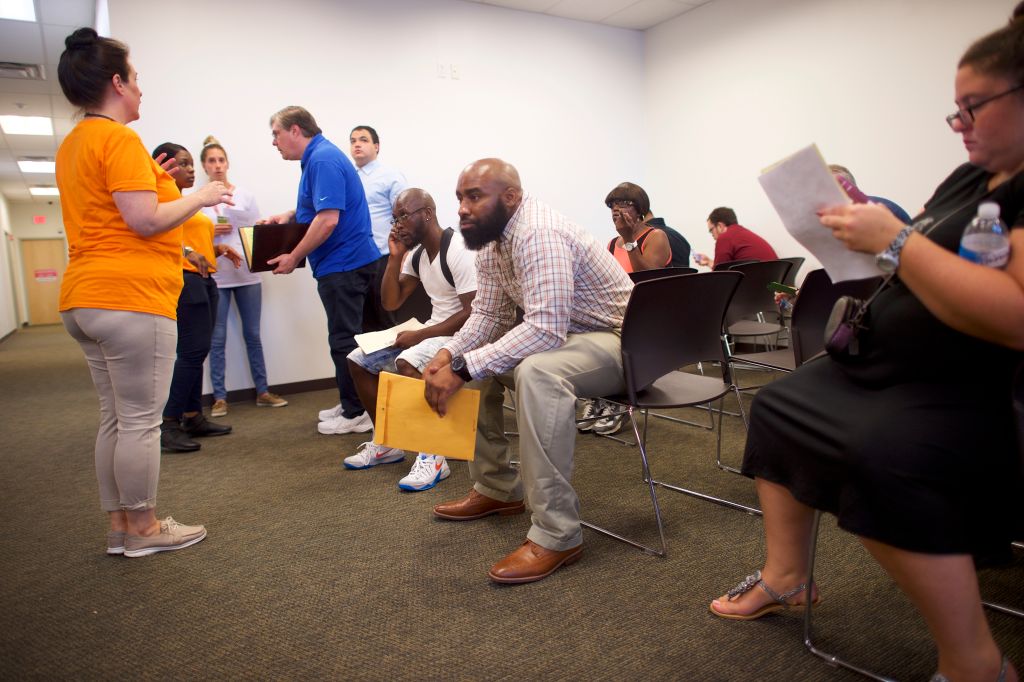
The fix for diversifying the initial pool is very different from the fix when only well-connected white men are getting high marks for interviews bloom.bg/3d0qxH1

White-led organizations feel uncomfortable about racism. But this is not about white people’s emotions. This is about finally delivering on racial equality bloom.bg/3d0qxH1
